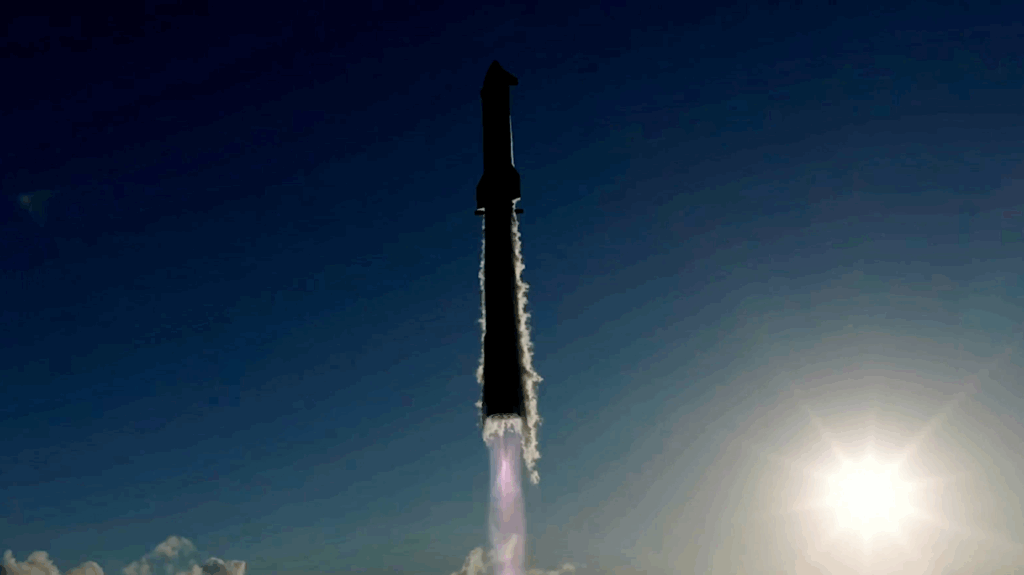Rocketlab Makes It To Orbit

Rocketlab Places Three Satellites Into Orbit (with video), SpaceRef
“Rocketlab conducted its second Electron launch today placing three cubesats into orbit. The launch occurred from the remote M?hia Peninsula in New Zealand. Mission control is located in Auckland, New Zealand. On board was a Planetlab cubesat named Dove Pioneer which will conduct Earth resource imaging and two Lemur-2 cubesats for Spire which will be used for weather and ship tracking. In all of its social media postings the company used #stilltesting tag to denote the fact that these initial launches still involve significant testing and proof-of-concept studies.”









Great job, hope you can start firing them like bottle rockets…
This is just great news. Period.
Congrats! Good to see a new technology (battery powered electric turbopumps) make it to orbit!
No turbines, they are electric pumps not turbopumps. Electric pumps are the key differentiator for this vehicle. It is much easier to do closed loop pump output pressure control with electric motors, particularly when the thrust chamber lights off.
You’re right. They’re just pumps. That was my mistake in typing “turbo”.
Congratulations! For a small private company to make it to orbit and make a country a space faring nation is no small accomplishment. Could not be happier for Peter and the team.
Does anyone know if the Rutherford engines are restartable? The 150 kg payload mass is just right for ESPA class small satellites, and it should that should be enough for about 45 U of CubeSats. But their market seems to be based on the idea of allowing small satellites more freedom to pick their own orbits rather than share. So 45 U of CubeSats all to the same orbit isn’t idea. With a restart-capable second stage, they could deliver them to different orbits. And the price is quite reasonable. It would come out to around $100,000 per U, which is well under the cost of a good CubeSat itself.
One other, unrelated question: The Friday launch attempt was scrubbed because a ship was in the restricted waters off the launch complex. Does anyone know what happens to the pilot/captan/charterer/owner of such a ship? Off Florida, I’d assume the Coast Guard would get involved, and I assume the New Zealand equivalent would be in this case (although, perhaps not since it’s a private launch complex.) Do they issue a warning, a fine, or what? Even if a scrub only adds a fraction of a percent to the launch costs, Rocket Lab would be out over $10,000.
I thought the main problem for CubeSat customers at the moment is the long waits for a ride opening, and the unpredictable schedules that are at the mercy of delays with the primary payload. I would guess that many of them could ride together into the same orbit, so they might be able to fill up Electrons with CubeSats, especially since easier access and more predictable schedules should cause the market to grow .
Those that do need specific orbits might continue to be stuck with piggyback rides on the big launchers until the small satellite launchers become more robust.
The backlog, wait to launch and being dependent on the primary payload’s schedule are all problems for CubeSats. If the CubeSat needs a particular orbit, that’s worse, since they have to wait for a primary payload which requires a similar orbit.
But there are also several CubeSat constellations (or plans for them) that require multiple spacecraft on different and relatively specific orbits, and Rocket Lab statements imply this is one of the sorts of business they plan on attracting. It isn’t necessary for Electron’s second stage to be restartable for this to work, but it would help. I was just wondering if that was the case.
“Rocket Lab Reveals Its New Kick Stage”
Wow, problem solved. If Electron is successful it could exponentially expand the small satellite market.
Congratulations! Another commercial option for reaching orbit!